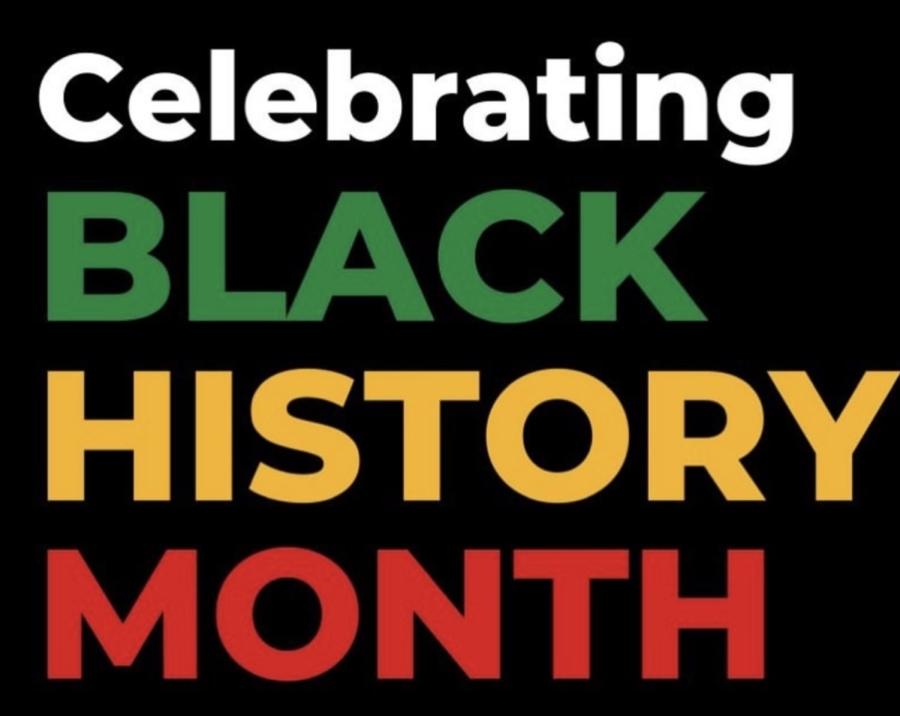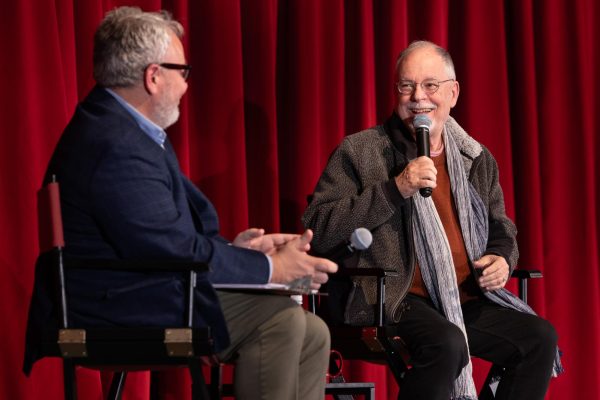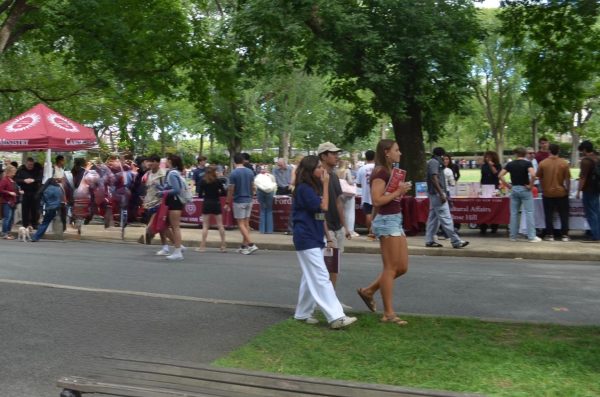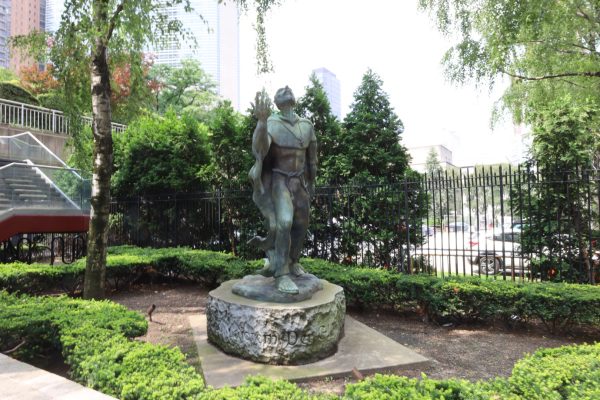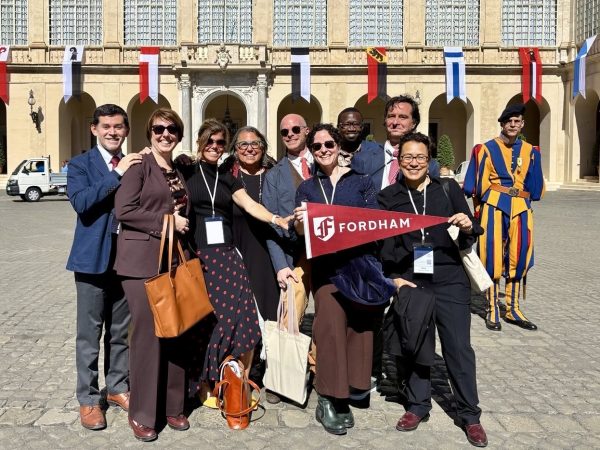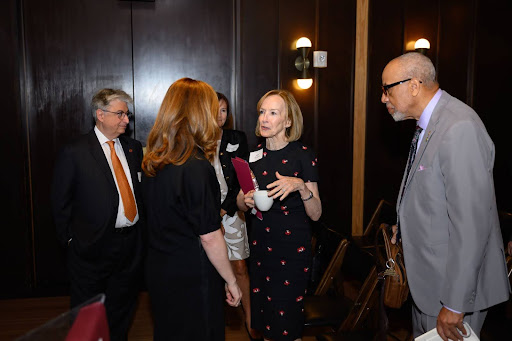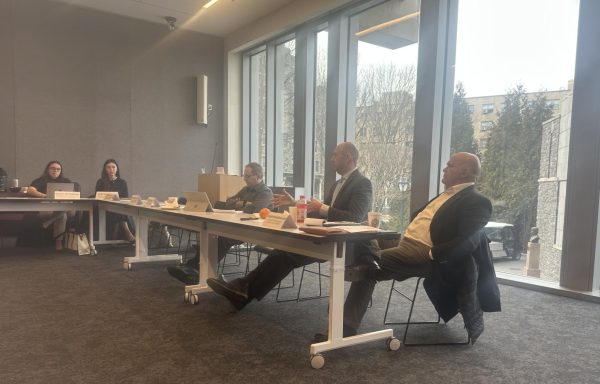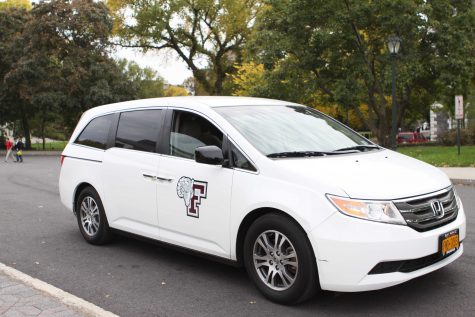Fordham Hosts Workshops on Race, Ethnicity and Allyship
In celebration of Black History Month, the Office of Multicultural Affairs and the Division for Student Affairs is hosting a “Racial Solidarity Network Interactive Workshop.” The interactive workshop is for students, faculty and staff, and is offered at both campuses. It is a two-day workshop exploring concepts related to race, ethnicity and allyship with two options for attendance: Feb. 7 and 14 (Rose Hill) or Feb. 8 and 15 (Lincoln Center).
Juan Carlos Matos, assistant vice president for Student Affairs for Diversity and Inclusion, discussed what students can expect. “These are the few times students are participating in a workshop with faculty and staff. Although the dynamics differ, attendees go through a variety of content as a cohort,” said Matos. “Cohort feel is an essential characteristic to the program. Content of the workshop includes interactive activities, videos, speakers and opportunities to have discussions.”
Something that is unique to Fordham is the use of caucusing groups. On day two, participants can expect to be placed in caucus groups based on race self-selected during registration.
“Lots of research talks about the power of racial caucusing, the ability to have a conversation with folks that relate to you racially and ethnically,” said Matos.
“Conversation can be had on a much deeper level because programs like this exist where we have people of color but also Black folks that are participating in the conversation. White folks may have maybe very different conversations than people of color will have and done in a space with peers that may have similar or closely similar experiences.”
In separated groups, conversations that impact communities can range from experiences of implicit bias, racism, white privilege, colorism and more. Due to COVID-19, numbers have been low for “biracial” and “multicultural” groups. They are invited to select the race they resonate the strongest with. An advantage to the workshop being a two-day format is adjustments can be made on the spot.
The interactive portion of the workshop is the “step in activity.” A number of prompts are read. Peers have an idea of who has had similar or different experiences in that space and time than one’s own stepping in or out. Prompts are related to different social identities, and a larger group discussion then takes place after the caucusing activity.
A variety of informative videos include topics of cultural appropriation, “achieving racial equity on campus” by a prominent speaker working in higher education, and the history of racism in the United States. After viewing the videos, participants are broken into pairs with an abundant number of questions to reflect upon and then contribute to a larger group discussing responses.
One of the Racial Solidarity Network’s objectives is Fordham’s cura personalis, care for the whole person. The “History of Race in the United States” video helps familiarize and recognize messages socially constructed that have been internalized and what it means to each person and others.
“Being able to be self-reflective but connected to other people as well is a very important piece to allow us to connect with one another in a more authentic way. I think in order to care for the whole person our race and ethnicity is a part of that experience,” said Matos.
Psychological service speakers will speak on facts regarding the mental health of people of color and general mental health and self-care. Dean of Students, Christopher Rodgers, will provide an overview of campus steps to support students impacted if a situation based on race occurs.
OMA hopes that participants will come out of this workshop with a layer of skillset and a better understanding of their roles as members of the Fordham community and familiarization with concepts, terms and experiences that allow for conversation intentionally across the university.
The program is meant to build a network of people informally supporting each other when incidents happen, and formally connects people as they leave with contacts throughout the university.
This program along with LGBTQ+ and ally programs happens every semester. They hope to increase awareness for those who may be struggling and remain committed to the conversation.



































































































































































































